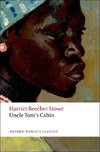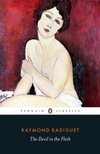
-
 Anglický jazyk
Anglický jazyk
Club Life of London
Autor: John Timbs
The Club, in the general acceptation of the term, may be regarded as one of the earliest offshoots of Man's habitually gregarious and social inclination and as an instance of that remarkable influence which, in an early stage of society, the powers of Nature... Viac o knihe
Na objednávku, dodanie 2-4 týždne
29.57 €
bežná cena: 33.60 €
O knihe
The Club, in the general acceptation of the term, may be regarded as one of the earliest offshoots of Man's habitually gregarious and social inclination and as an instance of that remarkable influence which, in an early stage of society, the powers of Nature exercise over the fortunes of mankind. It may not be traceable to the time "When Adam dolve, and Eve span " but, it is natural to imagine that concurrent with the force of numbers must have increased the tendency of men to associate for some common object. This may have been the enjoyment of the staple of life for, our elegant Essayist, writing with ages of experience at his beck, has truly said, "all celebrated Clubs were founded upon eating and drinking, which are points where most men agree, and in which the learned and the illiterate, the dull and the airy, the philosopher and the buffoon, can all of them bear a part."For special proof of the antiquity of the practice it may suffice to refer to the polished Athenians, who had, besides their general symposia, friendly meetings, where every one sent his own portion of the feast, bore a proportionate part of the expense, or gave a pledge at a fixed price.A regard for clubbism existed even in Lycurgan Sparta: the public tables consisted generally of fifteen persons each, and all vacancies were filled up by ballot, in which unanimous consent was indispensable for election and the other laws, as described by Plutarch, differ but slightly from those of modern Clubs. Justus Lipsius mentions a bonâ fide Roman Club, the members of which were bound by certain organized rules and regulations. Cicero records (De Senectute) the pleasure he took in frequenting the meetings of those social parties of his time, termed confraternities, where, according to a good old custom, a president was appointed and he adds that the principal satisfaction he received from such entertainments, arose much less from the pleasures of the palate than from the opportunity thereby afforded him of enjoying excellent company and conversation. The cognomen Club claims descent from the Anglo-Saxon for Skinner derives it from clifian, cleofian (our cleave), from the division of the reckoning among the guests around the table. The word signifies uniting to divide, like clave, including the correlative meanings to adhere and to separate.
- Vydavateľstvo: Lulu.com
- Rok vydania: 2022
- Formát: Paperback
- Rozmer: 210 x 148 mm
- Jazyk: Anglický jazyk
- ISBN: 9781387901395












